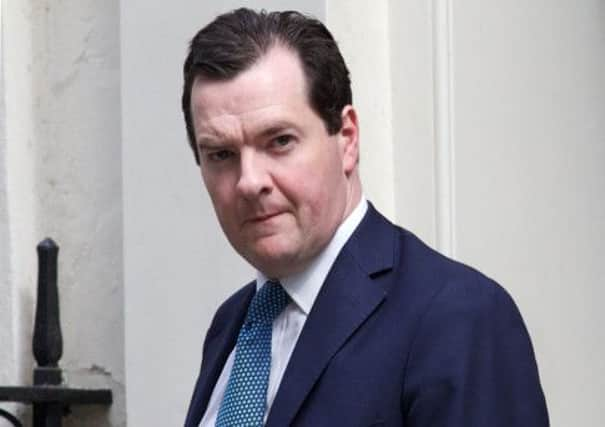David Maddox: Awaiting the gloomy long-term forecast


Indeed, it is more likely that the Chancellor could be mistaken for the Greek classical figure Cassandra, who could see the future – but only the bleak parts.
It is no secret Osborne will be announcing that the austerity measures will go on relentlessly past the next election, whether he is in power or not. The government will be explaining how it will chop £11.5 billion from public spending on top of the billions of reductions already introduced.
Advertisement
Hide AdAdvertisement
Hide AdAll government departments have agreed the level of their cuts and now just need to implement them.
However, the message behind what the Chancellor will be saying is that the tough medicine is not working – but for him the only answer is a even higher dose of the same failed treatment.
He has already had to postpone his deficit reduction targets by two years because the government has been forced to borrow more because of a lack of growth. With last week’s figures showing that borrowing went up again – albeit masked by a windfall from Swiss banks – he may be forced to postpone those targets again.
There is no sign and little hope of the once cherished triple-A credit status for the UK being returned.
Yet, some may see tomorrow’s exercise as an early election manifesto and no more. After all, the review only comes into force after the 2015 election, so to a certain extent could be changed by an incoming Labour government.
The bad news for those optimists is that there really appears to be no choice. In the past fortnight, Labour leader Ed Miliband and shadow chancellor Ed Balls have made it clear that they will accept most of the austerity measures and the spending limits being set by the coalition.
They had to do this to try to regain economic credibility, mainly because nobody really believes that a debt crisis can be solved by spending and borrowing lots more. The truth is that the UK economy is too dependent on external factors such as a recovery in the eurozone and an end to worldwide food and fuel inflation for much of what our politicians can do to be any sort of solution.
The one alternative being offered to tomorrow’s doom-laden vision is the optimistic note being struck by the SNP in the independence referendum campaign. Increasingly, the pitch is that Scotland can be the land of milk and honey, if it becomes a nation on its own.
Advertisement
Hide AdAdvertisement
Hide AdHowever, the polls suggest that voters north of the Border currently do not believe that and that, as miserable and unpopular Osborne’s message may be tomorrow, most people think it is at least realistic.